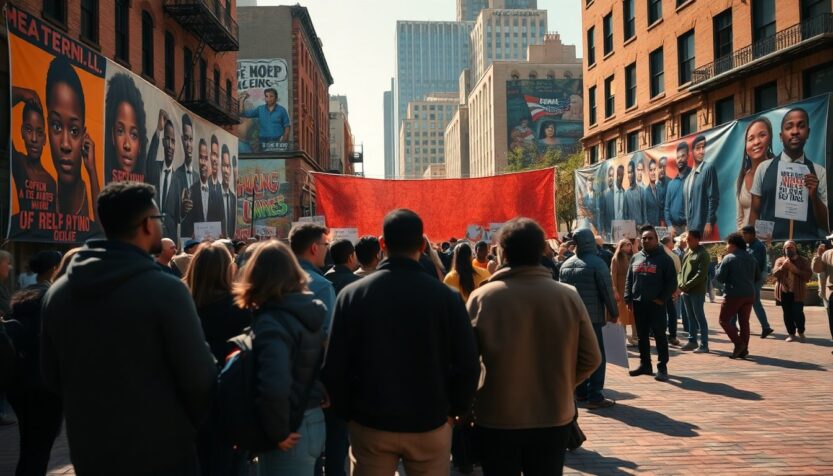In the aftermath of George Floyd’s tragic death, a wave of awareness surged through society regarding the pervasive nature of racism in America. This moment sparked discussions, protests, and a long-overdue reckoning with racial inequality. However, the shock felt by many was accompanied by a disheartening realization: systemic racism had thrived before their eyes, while many remained oblivious.
The emotional toll of witnessing repeated instances of racial injustice has reached a breaking point for many. The political climate and constant barrage of distressing news have intensified feelings of anxiety and fear among marginalized groups. While everyone experiences stress, the weight of these challenges is disproportionate for people of color, transgender individuals, and immigrants. For these communities, these issues are not mere headlines; they are deeply personal and affect their very existence.
The facts
Every day, individuals confront a stream of negative messages that question their intelligence, competence, and worth. This constant assault on identity reflects a widespread belief system that legitimizes harmful rhetoric. For every person who expresses these vile sentiments publicly, countless others silently agree, creating an environment where hatred and discrimination can flourish unabated.
The practical ramifications of this societal climate are staggering. Black individuals, particularly women, are facing unprecedented job losses due to rollbacks in Diversity, Equity, and Inclusion (DEI) initiatives. The rates of racial violence are alarmingly high, leading many to grapple with terrifying questions about their safety and the legality of their relationships. It’s a grim reality that weighs heavily on communities, and many Black and brown individuals may be suffering in silence.
Behind the smiles
It’s easy to overlook the struggles of those who appear to thrive. Colleagues may excel in their roles, or a young Arab woman may project confidence on social media. However, beneath the surface, these individuals often carry heavy burdens. Balancing work, family, and personal aspirations while facing constant challenges to their humanity is a reality for many.
For those who don’t share these experiences, comprehending the depth of despair can be difficult. Well-meaning allies, despite their outrage, often remain insulated from the harsh realities faced by marginalized communities. They may not fully grasp the weight of living with the constant fear of becoming a target for discrimination or violence. While empathy is appreciated, the lived experience of being marginalized shapes understanding in profound ways.
Reflections on progress and setbacks
A father who witnessed significant civil rights strides throughout his life often lamented the deterioration of race relations in recent years. He experienced segregation and fought against it both personally and professionally. By the time he passed away, he believed that the state of racial dynamics had regressed to levels worse than those encountered in his lifetime. This sentiment captures the despair that arises when progress appears to slip away, leaving behind a sense of loss and betrayal.
Following hopeful moments, many in Black and brown communities dared to believe that change was possible. However, the swift abandonment of these discussions by society was disheartening. The fervor for allyship and support has dwindled, leaving those who need it most feeling isolated. Reflecting on the urgency of the situation reveals that the desire for meaningful change has not disappeared; it has simply become muted.
A call to action
In light of these challenges, it is essential for allies to remain engaged and proactive. Here are five crucial reminders for fostering understanding and solidarity:
- Acknowledge the fear: Recognize the profound anxiety that Black and brown individuals experience in today’s climate.
- Check in with your friends: Make an effort to reach out to people of color in your community. Create spaces where they feel safe to share their experiences and emotions.
- Seek genuine connections: Continue to engage with individuals from diverse backgrounds, even when the urgency of the moment fades from public discourse.
- Use your voice: Stand up against hate speech and advocate for diversity in workplaces and communities.
- Remember the importance of race: Understand that racial issues are still paramount and that fighting for equality requires ongoing effort.
The reality of racism and discrimination persists. It is essential to remain vigilant and committed to advocating for justice and equality for all.






